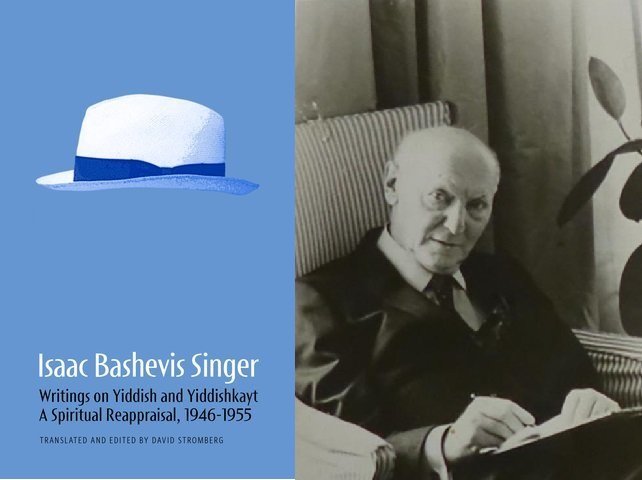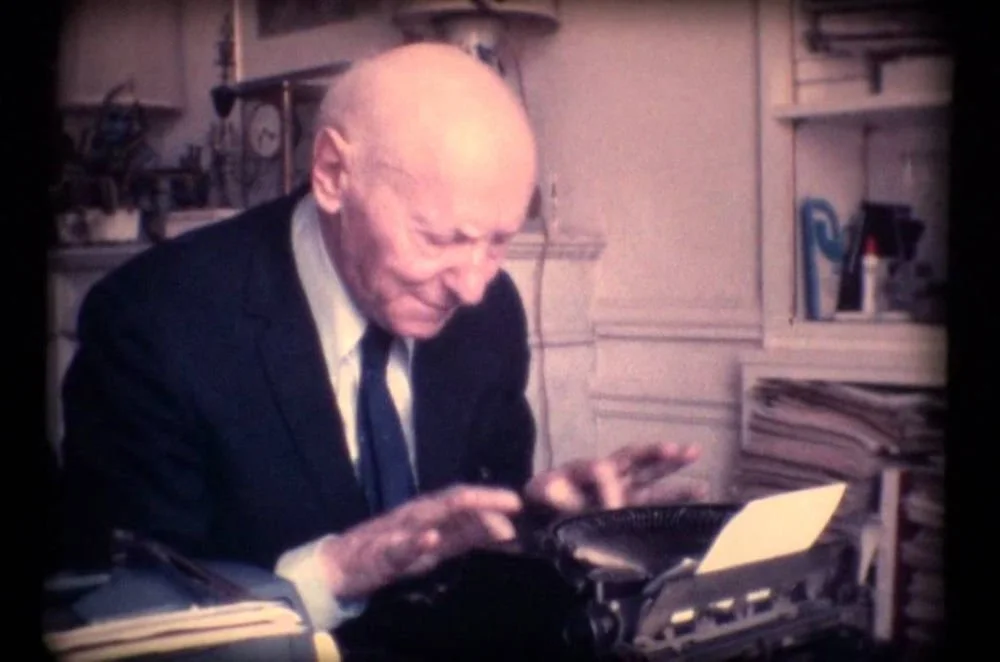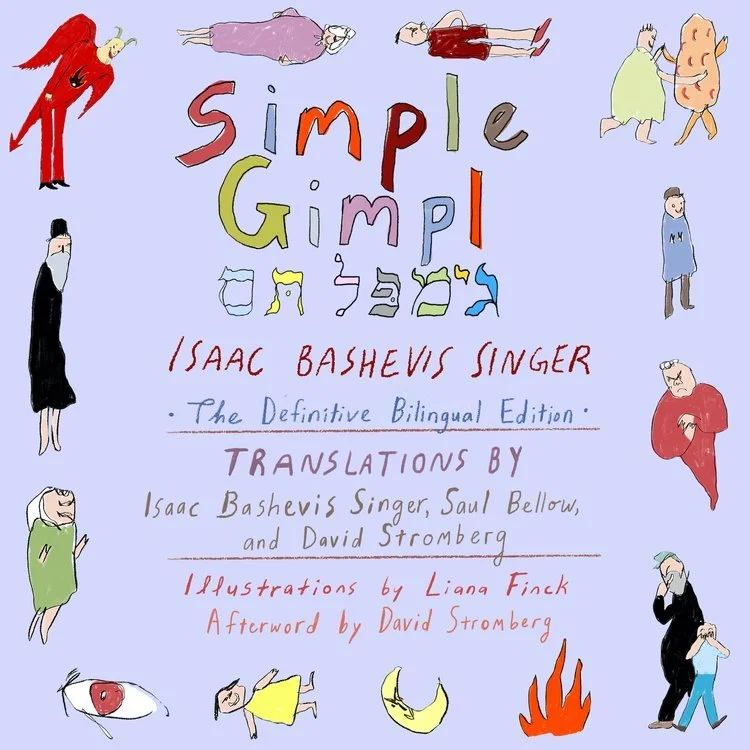“I’m sometime afraid that men will get to the conclusion that reading fiction is a waist of time…”
Read MoreNews & Events
Check here for the latest news about upcoming events, and insights into Singer's life, work, and historical legacy.
WRITINGS ON YIDDISH AND YIDDISHKAYT - A SPIRITUAL REAPPRAISAL, 1946-1955
A well-crafted anthology of musings from a giant of Jewish literature.
Read MoreIsaac Bashevis Singer: Writings on Yiddish and Yiddishkayt Volume 2A Spiritual Reappraisal, 1946-1955 - Literary scholar David Stromberg discusses the astonishing career of the eminent Yiddish-language author, Isaac Bashevis Singer.
Read MoreNow Bashevis’s Demons, direct from engagements in Buenos Aires and Rio de Janeiro, has arrived at Off Broadway’s Theatre 154 comprised of three short stories in the original Yiddish with English supertitles as a fascinating combination of both Story Theater and a dramatic reading.
Read MoreBashevis’ Demons, an evening of three staged Singer stories, is playing at Theatre 154 in the West Village. Starring Shane Baker and Miriyem-Khaye Seigel, the show played Buenos Aires, Stockholm and Rio De Janeiro before arriving in Singer’s adopted home of New York
Read MoreStromberg offers newly translated essays by Nobel laurate Isaac Bashevis Singer that shed light on the Polish American author’s postwar transformation.
Read MoreBashevis's Demons by Isaac Bashevis Singer
Dec 18 2024 through Jan 5 2025
Theatre 154 (154 Christopher Street)
Bashevis's Demons by Isaac Bashevis Singer
Dec 18 2024 through Jan 5 2025
Theatre 154 (154 Christopher Street)
“Prepare to be astonished” The Age
Yentl is an ode to the feminist undertones and queer subtext of the original story and an invitation to celebrate the beauty of Yiddish culture.
Sometimes a publisher gets lucky. The publisher works to bring out a book of historical interest that seems to have a modest potential readership, and then events make that book suddenly widely relevant.
Read MoreCompared to his fiction, Singer’s work as a journalist often gets short shrift. But translator David Stromberg argues that the writer’s output as a newspaper contributor is inseparable from his later books.
Read MoreThe expression “Don’t get me wrong” is a good place to start – an ethical mandate as well as a critic’s dictum.
Read MoreIn 1966, the critic Irving Howe published an essay whose title, “The Other Singer,” testified to a literary usurpation. For American readers in the nineteen-sixties, the name Singer meant Isaac Bashevis Singer. In Howe’s opinion, however, the ascent of I. B. Singer—known to Yiddish readers by his nom de plume, Bashevis—was not a cause for celebration, because it meant the eclipse of a better writer: his older brother, Israel Joshua Singer.
Read MorePerhaps a modicum of perspective could be provided by cracking it open and reading Singer’s reactions as news of Nazi atrocities in Europe reached the United States, his new home.
Read MoreIsaac Bashevis Singer, edited and trans. from the Yiddish by David Stromberg. White Goat, $24.95. Isaac Bashevis Singer originally published each of these pieces under pseudonyms in Forverts, the world's oldest Yiddish newspaper, when he was still relatively unknown. The essays are arranged chronologically, offering readers the unique opportunity to bear witness to the shifts in Singer's perspective as history unfolded
Read MoreThe story, originally “Gimpl tam” in Yiddish, is familiar to English readers as “Gimpel the Fool,” the title Saul Bellow used for his famous 1953 translation. The new, definitive edition contains Singer’s original Yiddish text together with Bellow’s version, alongside a new translation by David Stromberg
Read MoreThe Book launch for “Der Sharlatan” at Beit Leyvik
Read MoreWorld's first Bashevis Singer museum opens in Poland
Read MoreBeautifully printed and presented, this new edition is a gift to readers and scholars alike.
Looking back on my life, I can remember always being exceedingly curious about the unusual, the mysterious, the miraculous.
Read More




















